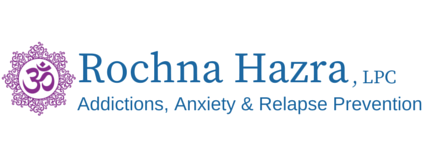Growing Up With An Alcoholic Parent
In the next several weeks, we will look at the different characteristics that people develop in growing up with an alcoholic parent. Adult children of alcoholics, very often, marry an addict or become addicted to alcohol, prescription medication, shopping or gambling themselves. They may also develop an eating disorder.
Growing up in a family where one or both parents are alcoholic can be not only painful and traumatic but can create behavior patterns in you that hinder your happiness and well-being in your adult years. In this article, you will meet Carla who bears the scars of growing up with an alcoholic mom.
Carla was the proverbial middle child. She had 2 younger brothers. When her parents divorced, Carla’s older sister had already left home. Carla’s mother began to work full time. This is the first time, mom was working outside the home. The responsibility of taking care of her two young brothers, fell to 13 year old Carla. She got them their after school snacks, helped with their homework. After mom came home from work, Carla helped mom fix dinner and packed everyone’s lunch for the next day.
By the time, dinner was done, mom had already had several glasses of wine. More often than not, the next morning Carla found her mother on the family room couch where she had passed out the night before. Carla would wake her mom up and mom would leave for work and the routine would begin all over again.
Seeing her mother like this brought up a mix of emotions in Carla. She felt sorry for her mom who was having a hard time coping with the divorce, she felt angry and resentful when she had to give up having a sleepover at her best friend’s home, because mom needed help taking care of the boys, she felt very vulnerable because she knew she could not depend on mom to fall back on. She felt fear when mom had sudden, unpredictable explosions of anger, screaming and breaking stuff in the home. And yet when mom was in a happy mood (usually weekends), she sang to them and told them funny stories about her childhood growing up on her grandparent’s farm. Carla adored her mom at these times and wished she would always just be like this.
Today Carla is a 29 year old woman. She is recently married to an older man with 2 beautiful girls from a previous marriage. Carla works hard at proving to her new husband that she is a good wife and mom. She has decorated the girls’ rooms with a lot of thought and makes sure that the refrigerator is stocked with their favorite snacks when they visit.
Carla loves being married. Her husband makes good money and showers her with expensive gifts. Carla loves being adored and pampered — something she never had growing up. She loves this side of her husband.
But lately Carla has noticed that her husband drinks heavily on nights he is stressed because of work. If she says something, either he ignores her or makes mean and sarcastic comments about her weight and crows’ feet around her eyes.
Carla examines her face carefully in the mirror but doesn’t see any wrinkles. She has become even more careful about what she eats. Perhaps she has gained weight and thats the reason her husband has been less attentive.
What you see are some of the more common traits in people who have grown up with an alcoholic parent in the home.
A constant need to please and seek approval: Carla is constantly worrying about her looks, her weight and her housekeeping abilities that she believes are essential to keeping her husband happy and their marriage strong. She not only tries to take care of her husband’s needs but also tries to anticipate his needs and wishes. She has a strong need to please and seek his approval.
Low self-esteem: Carla is extremely sensitive to perceived slights or rejections. If her husband is distracted with work, she assumes that he is not attracted to her any more. If a neighbor drives past without waving or acknowledging, she does not consider that she may be busy but that the neighbor does not like her. These perceived rejections can ruin Carla’s mood or her several hours.
Feeling overly responsible: As a child, Carla took on responsibilities that were far beyond her age. Now she feels totally responsible for taking care of her step-daughters, planning fun activities and making sure they have a good time when they come to visit. As a result, she is tense, stressed and stretched thin in terms f time and energy and is not able to enjoy having the girls and get to know them. Also, as she watches her husband working or watching football with his buddies while she is left to entertain the girls, she feels resentful at having to do all the work.
Denial: Carla has begun to notice that her husband has begun to drink excessively on occasion. And although, many of his behavior patterns are very similar to her mother’s, Carla refuses to acknowledge that her husband may have a drinking problem.
In our next segment, we will look at some of the other characteristics that develop in a person who has grown up in alcoholic or addicted home.
About Rochna: Rochna Hazra is trained in Marriage and Family Therapy at Virginia Tech. She includes the emotional, psychological, spiritual and family aspects of a person in her work. Originally from India, she combines the Eastern traditions of mindfulness, non-judgment and a holistic approach to healing with the Western approach of realism and solution-focused action.
Rochna has extensive knowledge, training and experience in working with alcoholism and families struggling with this issue.
Rochna is also a Certified Advanced Relapse Prevention Specialist and trained in Sex Addiction and Mindfulness-based Therapy and Relapse Prevention.

